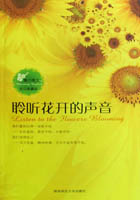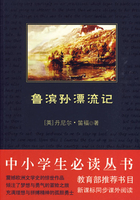“Stand back, please!” he train was about to start, and I waved farewell to my friend. Le Ros did not stand back. He stood clasping in both hands the hands of the young American.“Stand back, sir, please!” he obeyed, but quickly darted forward again to whisper some final word. I think there were tears in her eyes. There certainly were tears in his when, at length, having watched the train out of sight, he turned round. He seemed, nevertheless, delighted to see me. He asked me where I had been hiding all these years; and simultaneously repaid me the half-crown as though it had been borrowed yesterday. He linked his arm in mine, and walked with me slowly along the platform, saying with what pleasure he read my dramatic criticisms every Saturday.
I told him, in return, how much he was missed on the stage. “Ah, yes,” he said, “I never acton the stage nowadays.” He laid some emphasis on the word“stage.” and I asked him where, then, he did act. “On the platform,” he answered. “You mean,” said I, “that you recite at concerts?” He smiled.“This,” he whispered, striking his stick on the ground, “is the platform I mean.” Had his mysterious prosperity unhinged him? He looked quite sane. I begged him to be more explicit.
“I suppose,” he said presently, giving me a light for the cigar which he had offered me, “You have been seeing a friend off? I assented. He asked me what I supposed he had been doing. I said that I had watched him doing the same thing. “No,” he said gravely. “That lady was not a friend of mine. I met her for the first time this morning, less than half an hour ago, here.” and again he struck the platform with his stick.
I confessed that I was bewildered. He smiled. “You may,” he said, “have heard of the Anglo-American Social Bureau? I had not. He explained to me that of the thousands of Americans who annually pass through England there are many hundreds who have no English friends. In the old days they used to bring letters of introduction. But the English are so inhospitable that these letters are hardly worth the paper they are written on. ” Thus, “aid Le Ros,” the A.A.S.B. supplies a long-felt want. Americans are a sociable people, and most of them have plenty of money to spend. The A.A.S.B. supplies them with English friends. Fifty percent of the fees is paid over to the friends. The other fifty is retained by the A.A.S.B. I am not, alas! A director. If I were, I should be a very rich man indeed. I am only an employee. But even so I do very well. I am one of the seers-off.
Again I asked for enlightenment. “Many Americans,” he said, “cannot afford to keep friends in England. But they can all afford to be seen off. The fee is only five pounds (twenty-five dollars) for a single traveller; and eight pounds (forty dollars) for a party of two or more. They send that in to the Bureau, giving the date of their departure, and a description by which the seer-off can identify them on the platform. And then—well, then they are seen off.”
“But is it worth” I exclaimed. “Of course it is worth it,” said Le Ros. “It prevents them from feeling ‘Out of it.’ It earns them the respect of the guard. It saves them from being despised by their fellow-passengers—the people who are going to be on the boat. It gives them a footing for the whole voyage. Besides, it is a great pleasure in itself. You saw me seeing that young lady off. Didn’t you think I did it beautifully?” “Beautifully,” I admitted. “I envied you. There was I—” “Yes, I can imagine. There were you, shuffling from head to foot, staring blankly at your friend, trying to make conversation. I know. That’ s how I used to be myself, before I studied, and went into the thing professionally. I don’ t say I’ m perfect yet. I’m still a martyr to platform fright. A railway station is the most difficult of all places to act in, as you have discovered for yourself.” “But,” I said with resentment, “I wasn’ t trying to act. I really felt.” “so did I, my boy,” aid Le Ros. “You can’t act without feeling. What’s-his-name, the Frenchman—Diderot, yes—said you could; but what did he know about it? Don’ t you see those tears in my eyes when the train started? I hadn’t forced them. I tell you I was moved. So were you, I dare say. But you couldn’ t have pumped up a tear to prove it. You can’ t express your feelings. In other words, you can’t act. At any rate,” he added kindly, “not in a railway station.” “Teach me!” cried. He looked thoughtfully at me. “Well,” he said at length, “the seeing-off season is practically over. Yes, I’ll give you a course. I have a good many pupils on hand already; but yes,” he said, consulting an ornate notebook, “I could give you an hour on Tuesdays and Fridays.”
His terms, I confess, are rather high. But I don’t grudge the investment.
冬日漫步
A Winter Walk
亨利·大卫·梭罗 / Henry David Thoreau
The wind has gently murmured through the blinds, or puffed with feathery softness against the windows, and occasionally sighed like a summer zephyr lifting the leaves along, the livelong night. The meadow mouse has slept in his snug gallery in the sod, the owl has sat in a hollow tree in the depth of the swamp, the rabbit, the squirrel, and the fox have all been housed. The watch-dog has lain quiet on the hearth, and the cattle have stood silent in their stalls. The earth itself has slept, as it were its first, not its last sleep, save when some street sign or woodhouse door has faintly creaked upon its hinge, cheering forlorn nature at her midnight work—the only sound awake twixt Venus and Mars—advertising us of a remote inward warmth, a divine cheer and fellowship, where gods are met together, but where it is very bleak for men to stand. But while the earth has slumbered, all the air has been alive with feathery flakes descending, as if some northern Ceres reigned, showering her silvery grain over all the fields.















